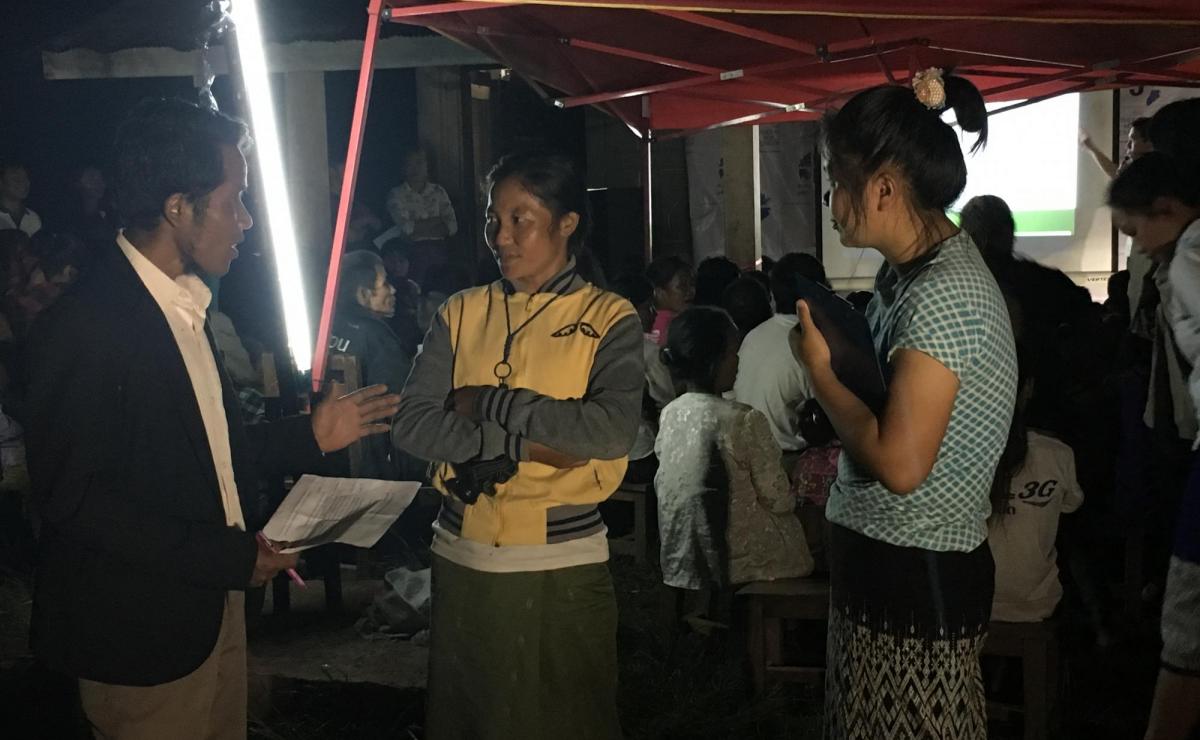Campaigns on Women Empowerment in the communities

Gender equity and domestic violence is still a critical challenge remaining in Laos particularly in the remote ethnic communities in Viengphoukha district, Luangnamtha province where LWF Laos operates.
Since the LWF Laos project target area is mostly multi-ethnic comprising of Muzer, Kui, Akha and Khmu minorities the diverse values and different perspectives towards development must be managed. Traditional practices and cultural belief of the community people sometimes contradict the projects proposed active participation and rights realization of women and children in cultures that are traditionally male oriented and generally defer to the elders.
The traditional duty of women towards the home economics , they work very hard in the field, collecting wild vegetable, animal and local products to sell in the town market every day while men are seen as the head of the household including decision making and business economics., These differentiations of roles along gender lines sometimes lead to gender inequality and gender violence.
Ms. Sikeo, LWF Community Empowerment Facilitator said that ‘‘Akha people don’t understand the value of education, girls are not encouraged to go to school. and in my assigned village, only one male has completed secondary school.’’ She added that ‘‘girls are likely to marry at an early age, girls at the age of 14 years or above are considered old already for marriage’’
Women and children are usually separated during meal times with external guests since they have to eat after the guests and then clean up. Mr. Sommai – LWF Community Empowerment Facilitator said that ‘‘this is quite challenge for us to explain about gender equality to the villagers and even to village authorities so that they are aware of these practices and the challenges they create for gender equality initiatives. ’’ Ethnic women and children are very reluctant and silent to express their thoughts and concern in the communities particularly during community meetings. Apart from cultural learning, language is another challenge for effective communication in Muzer and Kui ethnic communities. Mr. Sommai added that ‘‘women are overwhelmed to participate when we work with them. They remain silent because they’ve never explored this kind of experience in their community before.’’
Thus, LWF has developed different tools to support awareness raising campaigns that are appropriate respond to the actual context in the community. ‘‘We have developed facilitation tools to support awareness raising campaigns in the communities, we formed project teams to conduct drama shows to facilitate any form of awareness raising activities including gender equity’’ Mr. Khambay – LWF Project Officer explained. He continues: "It works better to involve female staff in sessions with and for women. Also, we are training key women as volunteers to help bridge language and culture gaps with our staff."
LWF conducts gender equity campaigns through drama shows. The tool is a very interactive, attractive and creativity tool for the communities. LWF project team now eagerly apply this tool as it is now proven to help open up the conversation among all stakeholders on the topic of gender. Ms. Thong a first woman village chief said that ‘‘we’ve never seen this before, I observe that people in the community are very exciting to watch drama especially children and youth, I’m very glad to see that people can answer questions and actively engage with the project team’’
LWF mainstreams related contents on women empowerment and related articles of law on domestic violence against women and children. Ms Thong stressed ‘‘we’ve seen that audiences, particularly women, are gradually aware of their rights and keen to know more of how they relate to them’’ The delivered contents include encouraging leadership of women, participation of women and women's protection. LWF Laos commits to the Rights Based Empowerment approach and is accountable to all stakeholder when applying different tools to enhance good facilitation techniques that ensure effective implementation and delivery of quality outputs in the most appropriate ways to the communities.
Story by: Alounsavath Thongphanith/LWF Laos Program Support Officer
Photo by: Siriphone Inmixay/LWF Laos Project Support Assistant

